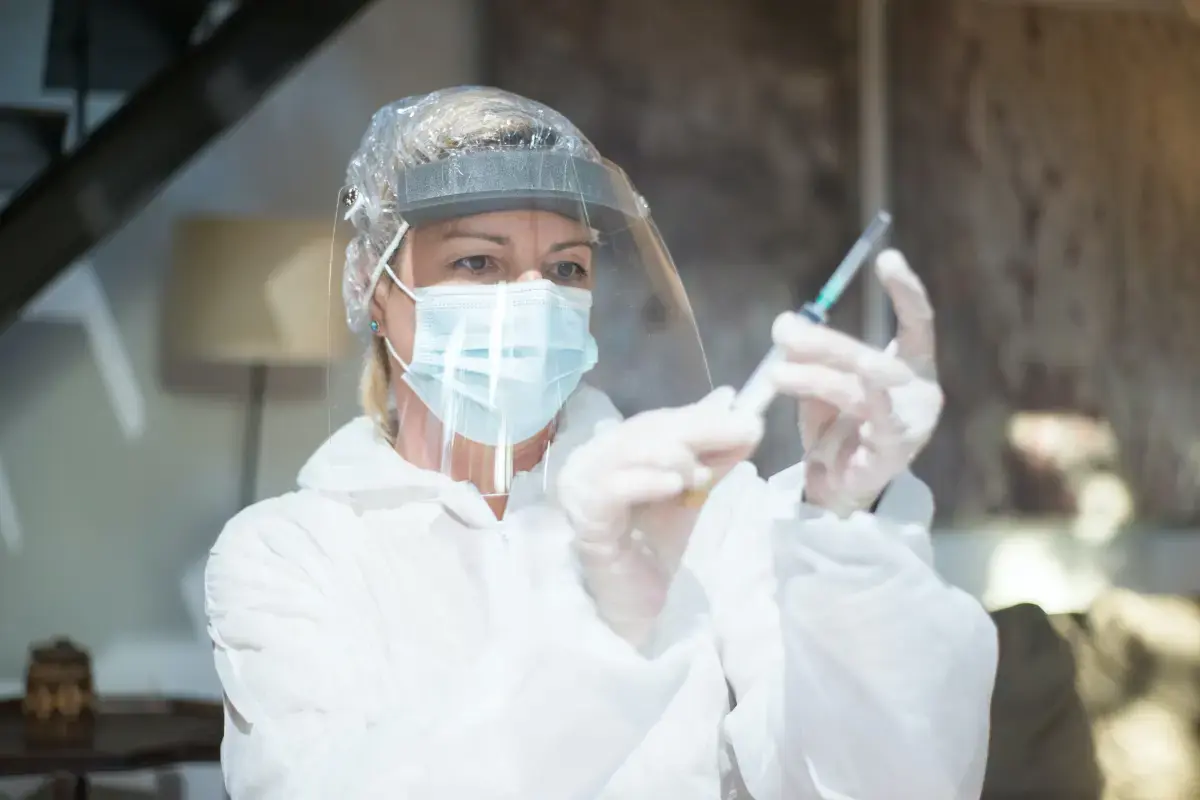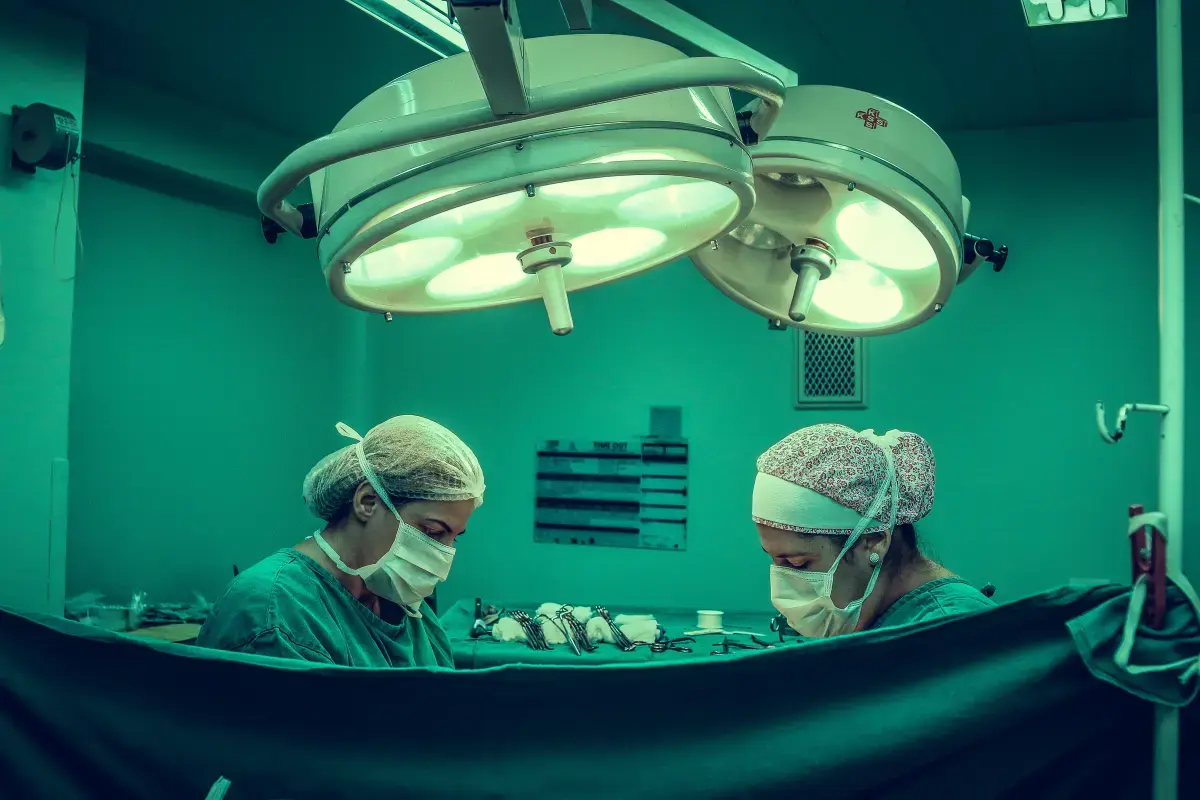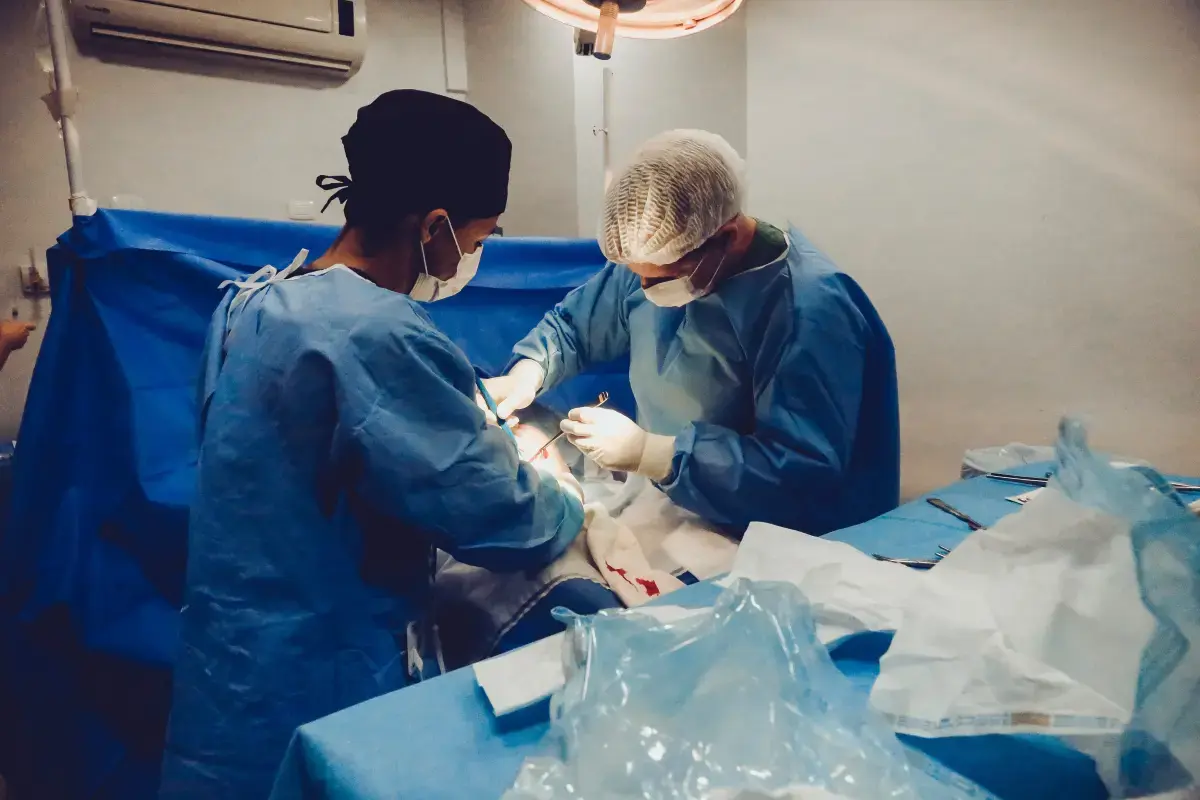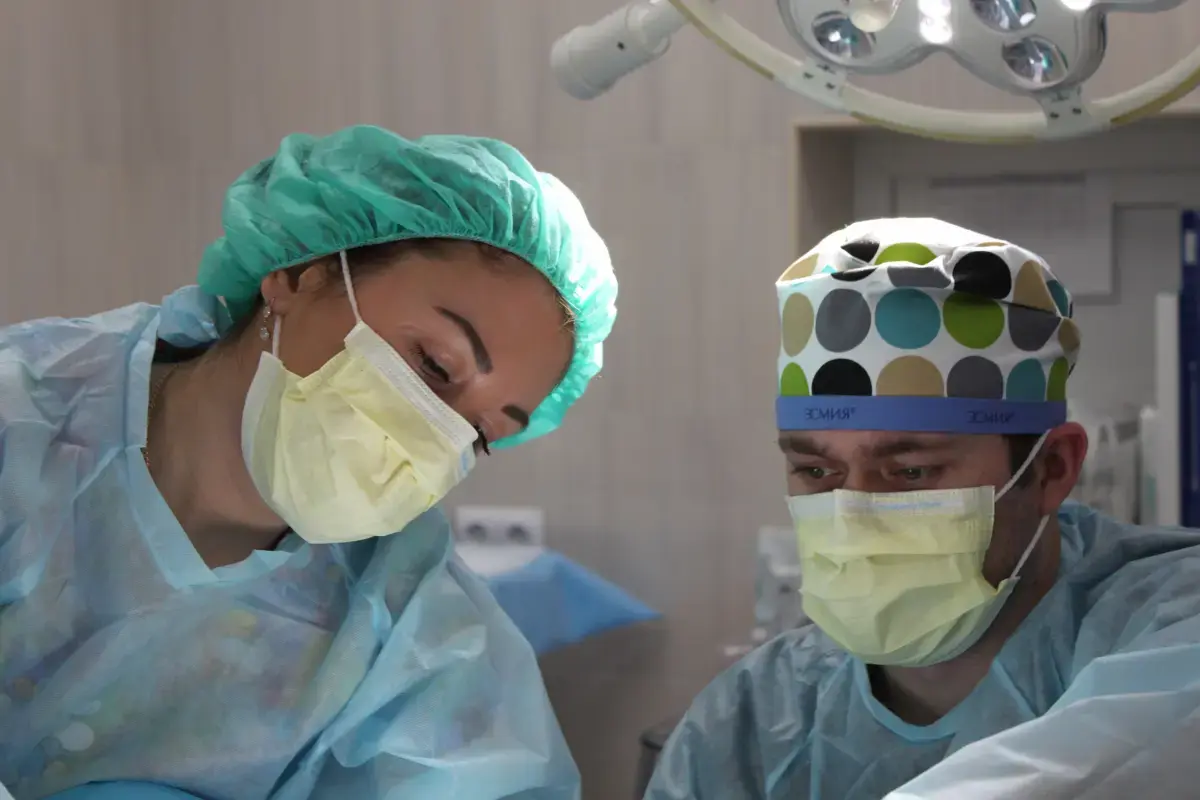
Plastic Surgeon Job Description
What is a Plastic Surgeon Professional?
A plastic surgeon is a licensed medical professional who has completed specialized training in the field of plastic surgery. Plastic surgeons are experts in both surgical and non-surgical procedures that can improve the appearance and function of the face, body, and skin. Common plastic surgery procedures include facelifts, breast augmentations, tummy tucks, liposuction, and rhinoplasty (nose surgery). Plastic surgeons use their skills to help patients achieve their desired look. Whether it’s correcting a birth defect, improving the appearance of scars from an accident or previous surgery, or helping someone achieve their ideal body weight through cosmetic procedures like liposuction – plastic surgeons can make a real difference in people’s lives.

What does a Plastic Surgeon Expert do?
The first step to becoming a plastic surgeon is completing an accredited medical degree program. After graduation from medical school, interested individuals must complete a five-year residency program in either general surgery or otolaryngology (ear, nose & throat surgery). Following completion of residency training, potential plastic surgeons must then pass board exams administered by the American Board of Plastic Surgery before they can receive certification and begin practicing.

What are the Skills of a Plastic Surgeon?
A plastic surgeon is a physician who specializes in the repair, reconstruction, and replacement of physical defects of form or function involving the skin, musculoskeletal system, craniofacial structures, hand, extremities, breast and trunk and external genitalia. Plastic surgeons work in all sectors of healthcare including reconstructive surgery after cancerous tumors are removed; performing corrective surgeries for congenital deformities like cleft palate; treating burns; cosmetic procedures to minimize the effects of aging or enhance appearance. They also work in non-patient care settings such as research laboratories developing new surgical techniques or devices. The skills required of a plastic surgeon are both medical and surgical.

What makes an Expert Plastic Surgeon?
Education: A plastic surgeon must complete four years of college followed by four years of medical school resulting in the awarding of an MD (Doctor of Medicine) or DO (Doctor osteopathic medicine). Following completion of medical school, they must then complete five to six years training in general surgery residency programs accredited by either the American Board Surgery (ABS) or Royal College Surgeons Canada (RCSC). After completing their residency training program, they then spend an additional one to two years completing fellowships in plastic surgery that is approved by either ABS or RCSC. Some physicians may choose to further subspecialize within the field through another fellowship focusing on one particular area such as microsurgery meaning they have completed seven to eight total years post-college education before becoming board certified plastic surgeons. In addition ASCP offers board certification for those wishing excelled training outside North America via its International Registry Examination process which assesses both knowledge and clinical skill set standards.

What level of Experience & Qualifications are required to be a Plastic Surgeon?
Industry Experience: 1. At least three years of residency in general surgery, plus two additional years of education and training specific to plastic surgery. 2. Knowledgeable experience with a wide range of reconstructive procedures or cosmetic surgeries such as face lifts, breast augmentation/reduction, liposuction, nose reshaping (rhinoplasty), tummy tucks etc. 3. Extensive knowledge on the anatomy and physiology related to all surgical interventions being performed including understanding pre-operative assessments, post-operative care & complications if any arise during treatment procedure . 4. Ability to make sound judgments based on clinical evidence for diagnosis and management plan for patients’ health outcomes successively over time period . Training Requirements: 1. Participation in relevant courses that provide certification upon completion showing expertise in plastic surgery technology like Botox injection techniques or laser treatments etc are beneficial but not required by most medical boards before practicing as Plastic Surgeon . 2 Courses which may add value to the practice include microsurgery , tissue engineering & 3D imaging technologies used while performing complex surgeries along with basic sciences i ncluding physics principles behind lasers too can be helpful when treating certain cases involving skin blemishes caused due sunburns or scars from accidents etc.. Qualifications: 1 Certified Board Certification issued by American Society Of Plastic Surgery is mandatory before one can start practicing independently as a qualified professional practitioner - this requires rigorous written + oral exams conducted annually each year according standard set forth by ASPSs governing body regulations .. 2 Other qualifications might vary depending on state laws so it would be wise checking local statutes prescribing what kind qualifications must have achieved order work successfully within given jurisdiction area under consideration accordingly... Education : 1 A completed Medical Degree (MD) obtained from accredited university program is essential requirement needed become successful Plastic Surgeon meaning having graduated 5-8yrs minimum schooling followed after completing Bachelor Science degree beforehand preferably something related healthcare field itself if possible otherwise General Sciences acceptable alternative too ... 2 Furthermore Master Degrees offered through specialized programs focused exclusively towards aesthetic medicine practices specifically targeting facial reconstruction operations done via latest technological advancements available today could certainly help aspiring surgeons gain edge competitively speaking once they enter into job market looking long term positions careers alike

What is the Salary of a Plastic Surgeon?
A plastic surgeon’s salary will vary based on experience, geographical location, and type of practice. Generally speaking, the range for a junior plastic surgeon (less than five years of experience) can start at around $150,000 - $200,000 per year. As their career progresses and they gain more experience in their field; salaries may increase to around $250,000 - 300,000 annually with senior level positions commanding up to over half a million dollars each year. In addition to base pay from medical work or surgeries performed as part of a private practice there are also bonuses available through teaching positions or performing research within universities where some doctors have been reported earning well into seven figures annually due to the large amount of additional income earned from lectures/speaking engagements and other activities outside traditional medicine. Furthermore many surgeons who specialize in cosmetic procedures such as Botox injections tend to earn even higher incomes given that these types treatments often attract wealthy clientele willing spend considerable amounts money achieve desired results thus driving prices accordingly upwards.

What are the Working Conditions for a Plastic Surgeon?
General working conditions for a plastic surgeon vary depending on where they practice and their specialty. Generally, most plastic surgeons have to keep up with continuing education requirements in order to stay abreast of new developments in the field. They must also maintain a sterile operating environment and adhere to safety regulations at all times. Plastic surgeons may spend time both inside an office setting seeing patients as well as performing surgeries or procedures in hospitals or clinics. Additionally, those who are self-employed often travel frequently between different areas of practice if they offer services outside their usual scope of expertise or geographical area. Working hours can be long; some days may require being on call 24/7 while other shifts involve late night calls from patients seeking emergency care after surgery has been completed during regular work hours. It is important that plastic surgeons remain organized when scheduling consultations and operations so that everything runs smoothly without delays which can cause strain on staff resources as well as patient satisfaction levels

What are the roles and responsibilities of a Plastic Surgeon?
Consult with patients to determine their desired results
Educate patients on the risks and benefits of various surgical and nonsurgical options
Develop individualized treatment plans based on each patient’s unique needs and goals
Perform a variety of plastic surgery procedures, including but not limited to: - Breast augmentations/reductions - Rhinoplasty (“nose jobs”) - Liposuction - Tummy tucks
Provide postoperative care and guidance, helping patients through the recovery process
Perform follow-up evaluations and provide long-term care, if necessary
Keep abreast of the latest surgical techniques and developments in their field
Consult with patients to discuss their medical histories, document preoperative goals, and develop treatment plans
Educate patients on what to expect before, during, and after surgery
Select the appropriate type of incision for each patient based on individual factors such as gender, age, body type, skin tone, desired results, and underlying health conditions
Place temporary drains in the wound to prevent fluid buildup and promote healing
Suture or staple the incisions closed once the procedure is complete
Apply dressings or wraps to protect the incision site(s) from infection and further irritation
Prescribe antibiotics or other medications to help manage pain and reduce the risk of infection
Perform post-operative follow-up visits to monitor the progress of healing and to address any concerns.
Cooperate with other health care professionals, such as nurses, anesthesiologists, pathologists, and audiologists, in order to provide comprehensive care for patients.
Keep abreast of new developments in plastic surgery through continuing medical education and reading of the scientific literature.
Utilize computer technology for research, patient education, exchanging information with colleagues worldwide, and keeping accurate records.
Teach at a medical school or train residents and fellows in plastic surgery techniques
Stay current on the latest advances in plastic surgery and share that knowledge with patients

Where can I find Plastic Surgeon jobs?
- Create a profile on gigexchange and promote your Plastic Surgeon skills to advertise you are Open to New Work Opportunities
- Ensure your Resume (or CV), or online work profile is up to date and represents your skills and experience. Ensure your reputation reflects your ability & attitude.
- Apply for Plastic Surgeon Jobs advertised on gigexchange.
- Practise Plastic Surgeon interview techniques to ensure you represent your personality and ability succinctly and confidently.
- Accept the job offer if the salary meets your expectations and the employer mission and purpose reflects your core values.
Jobs
What are the best job boards for Cosmetic Surgeon jobs?

How can I hire Plastic Surgeon staff online for my business?
The best job board for recruiting Plastic Surgeon experts is gigexchange.com. Advertise full-time, part-time or contract jobs to find, hire & recruit trusted, experienced and talented Plastic Surgeon candidates near you.

Are Plastic Surgeon roles in demand in 2026?
Plastic Surgeon experts are still in high demand in 2026. If you are an experienced Plastic Surgeon or looking to train and become one. The job market is looking strong for Plastic Surgeon jobs near me.